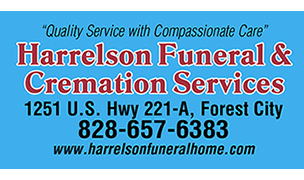
Imagine a crowd of about 24, mostly women talking about suicide prevention. It was remarkably civilized, congenial, and informative, even if the topic is about as emotional and tough as one can get.
One woman said, "I went to three different hospitals and talked to three different doctors thinking I was having a heart attack. They all told me there was nothing wrong with me; and I was making it all up. I was so overwhelmed, I went home that night and tried to kill myself. If just one of them had the sense to tell me I was having a panic attack, it would have saved me a lot of trouble."
Bottom line of the 90-minute workshop: be willing to listen. You might save somebody's life.
Held in Isothermal's Electronic Technology Workplace Development building last week, the workshop was led by student activities director Lisa Courtney and SGA president Lauren Street. The workshop featured a panel that included NAMI's Diane Krisanda, Jerry Wease who does suicide prevention with Mobile Crisis, the college's assessment counselor Alfreda Lindsay, Robert Owens who provides security for ICC as an employee of the sheriff's department, and two students who asked to remain unnamed.
NAMI is the National Alliance on Mental Illness and provides services to both the mentally ill and their families. The group won high praise from the woman who had attempted suicide after being dismissed by three doctors.
"NAMI helped me get into treatment that eventually took six months. If I had to pay for it, it would have been more than college tuition. Thanks to them, I'm able to live my life fairly normally today," she said.
Courtney urged the group members to "ask the question. Are you thinking about killing yourself?" She said we are afraid to ask the question, but many suicides could be prevented if the question were simply asked.
Once someone is convinced their friend or family member is seriously considering suicide, the next move is to call for help. The organization Wease works for, Mobile Crisis, is available 24/7 and 365 days of the year.
The number for Mobile Crisis is 888-573-1006. The agency serves 11 Western North Carolina Counties. Beyond Rutherford, it serves McDowell, Buncombe, Madison, Yancey, Polk, Transylvania, Caldwell, Mitchell, Alexander, and Henderson.
Another option is to dial 911 and ask for help from law enforcement. Police officers and deputies are trained in suicide prevention. Owens said he has been able to talk three people out of committing suicide.
He told a story of talking a guy off a bridge who had put a bicycle lock around his neck and secured it with a chain to the bridge. "If he had jumped, he would have snapped his neck." Owens was able to keep him talking while other officers came up behind him and got him off the bridge.
He was threatening suicide because he had stabbed his girlfriend and was afraid he had killed her.
A survivor of childhood sexual assault broke hearts with her stories of abuse and anger. She also told of identifying abuse in a classmate when she was much younger.
"I told her some responsible adult needed to know about this. Finally she did tell and after an officer visited her father, he never hit her again," she said.
Sunlight sometimes is all that is needed.
Owens also praised Lindsay for being willing to counsel people "off the street." She is apparently a very popular counselor among the student body, but Owens said he has seen her more than once care for needy folks who come in from the general public.
NAMI's services are also available to the general public. Krisanda's office is on Powell Street in Forest City across from the post office. Her numbers are 828-229-3338 and 828-771-6305. She runs a support group for family members and those dealing with a diagnosis of mental illness.
Both Courtney and Wease stressed empathetic, nonjudgmental listening.
"Don't say that if I was in your situation this is what I would do," Wease urged.
A phrase that was mentioned more than once is, "I'm concerned about you."
Noticing was also stressed.
Notice when you haven't heard from a friend in a while.
Notice when a friend or family member is socially isolating, spending time away from people who care.
"Connection is so important," Courtney said.
One of the most dramatic moments came at the end when one of the students talked about condemning someone who is lesbian, gay, bisexual or transgender or questioning issues around sexual identity or gender.
"Please don't say to this person, 'Well, you're going to hell.' Even if those are your religious beliefs, be kind, be empathetic, get them talking about their feelings. If they are in crisis, the last thing they need is your condemnation. Maybe, after they have had time to settle down and get through the crisis, you can invite them to go with you to church, but that is not the time to condemn. Tell them, 'I support you. I love you. I'm gonna take care of you.'"
Suicide rates are dramatically high among lgbtq teens, according to national studies.
Resources for suicide prevention:
911 ask for law enforcement
National Suicide Prevention Lifeline 800-273-8255
Local office of the National Alliance On Mental Illness 828-229-3338 and 828-771-6305
Local Mobile Crisis number 888-573-1006
If you fear a friend or family member is planning suicide, don't hesitate to call. Keep these numbers handy.








